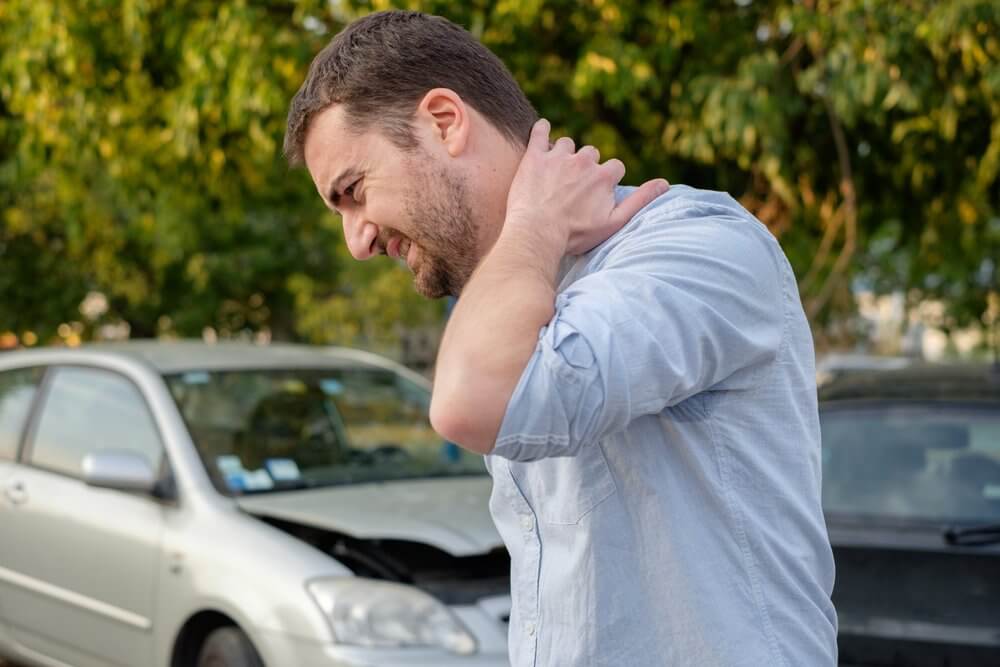Expert Car Accident Treatment: Speedy Recovery Tips and Vital Care Strategies

1. Assess Injuries and Call for Help
The first step after a car accident is to assess injuries. Check yourself and others for visible injuries and call emergency services immediately if needed. Your health is the top priority.
2. Follow Emergency Medical Advice
Once emergency services arrive, follow their instructions carefully. They are trained to provide immediate medical care and transport those in need to the nearest medical facility.
3. Visit the Emergency Room
Even if your injuries seem minor, it’s essential to visit the emergency room for a thorough examination. Some injuries may not manifest immediately, and prompt medical attention can prevent complications later.
Post-Accident Treatment Strategies
4. Follow Up with a Healthcare Professional
After the initial emergency care, schedule a follow-up appointment with your healthcare professional. They can assess your condition more thoroughly and recommend additional treatments or specialists if necessary.
5. Physical Therapy for Rehabilitation
Physical therapy is often crucial for recovering from car accident injuries. Therapists can design personalized exercises to improve mobility, reduce pain, and prevent long-term complications.
6. Chiropractic Care for Musculoskeletal Injuries
Chiropractic care can be beneficial for addressing musculoskeletal injuries resulting from a car accident. Aligning the spine and joints can alleviate pain and improve overall mobility.
7. Pain Management Techniques
For those dealing with chronic pain after a car accident, pain management techniques such as acupuncture, massage therapy, or medication can provide relief. Consult with your healthcare provider to determine the most suitable option for your situation.
Long-Term Recovery Strategies
8. Psychological Support
Car accidents can have a lasting impact on mental health. Seeking psychological support, such as counseling or therapy, can help address emotional trauma and promote overall well-being.
9. Continued Medical Monitoring
Even after initial treatment, some injuries may require ongoing monitoring. Regular check-ups with your healthcare provider ensure that any potential issues are identified and addressed promptly.
10. Healthy Lifestyle Choices
Adopting a healthy lifestyle can significantly contribute to your overall recovery. Maintain a balanced diet, stay hydrated, and engage in gentle exercises as advised by your healthcare professionals.
11. Legal Assistance
If the car accident resulted from someone else’s negligence, consider seeking legal advice. Compensation for medical expenses and other damages may be crucial for ensuring comprehensive care and recovery.
12. Traumatic Brain Injuries (TBIs)
Car accidents can result in traumatic brain injuries, ranging from mild concussions to more severe cases. Immediate medical attention is crucial for diagnosis and appropriate treatment. Rehabilitation may include cognitive therapy, occupational therapy, and ongoing monitoring to manage potential long-term effects.
13. Whiplash and Neck Injuries
Whiplash is a common injury in car accidents, affecting the neck and upper spine. Seeking chiropractic care and physical therapy can help alleviate pain and restore range of motion. Ice packs, gentle exercises, and neck braces may also be recommended to support healing.
14. Spinal Cord Injuries
Spinal cord injuries can have life-altering consequences. Immediate medical intervention is paramount to prevent further damage. Rehabilitation often involves physical therapy, adaptive equipment, and lifestyle adjustments. Consult with specialists to create a comprehensive care plan tailored to your specific condition.
15. Fractures and Orthopedic Injuries
Fractures and orthopedic injuries may require surgical intervention followed by extensive rehabilitation. Physical therapy, orthopedic devices, and regular follow-ups with orthopedic specialists are essential for ensuring proper healing and preventing long-term complications.
16. Nutritional Support for Healing
Nutrition plays a vital role in the recovery process. Ensure your body receives the nutrients it needs to heal by incorporating a balanced diet rich in vitamins and minerals. Consult with a nutritionist to create a personalized meal plan that supports your recovery goals.
17. Supplements for Recovery
In some cases, supplements may be recommended to aid the healing process. Omega-3 fatty acids, vitamin D, and glucosamine are examples of supplements that can support joint health and reduce inflammation. Always consult with your healthcare provider before adding supplements to your routine.
Tips for a Seamless Insurance Process
18. Documenting Injuries and Medical Expenses
To streamline the insurance process, meticulously document your injuries and medical expenses. Keep a record of medical bills, prescriptions, and any other related costs. This documentation is crucial when filing a claim with your insurance company.
19. Communicating with Insurance Adjusters
Open and transparent communication with insurance adjusters is key. Provide accurate and detailed information about the accident, injuries, and medical treatments. Be proactive in following up to ensure your claim is processed efficiently.
The Importance of Exercise in Recovery
20. Gradual Exercise Programs
Exercise is an integral part of the recovery process, promoting flexibility and strength. Work with your healthcare professionals to develop a gradual exercise program tailored to your abilities. Low-impact activities such as walking, swimming, or stationary cycling can be beneficial.
21. Physical Activity for Mental Health
Engaging in physical activity not only aids physical recovery but also positively impacts mental health.
Endorphins released during exercise can help alleviate stress, anxiety, and depression commonly associated with the aftermath of a car accident.
Conclusion
In the aftermath of a car accident, a comprehensive recovery plan is essential for addressing a myriad of physical and emotional challenges. From immediate actions at the accident scene to long-term rehabilitation strategies, every step contributes to your overall well-being.
Remember, seeking professional medical advice and adhering to treatment recommendations are crucial for a successful recovery. Embrace a multi-disciplinary approach that includes healthcare professionals, therapists, and, if necessary, legal experts to ensure all aspects of your well-being are considered.
While the journey to recovery may be challenging, each step forward is a victory. By prioritizing your health and following the guidance provided in this comprehensive guide, you’re setting the foundation for a full and robust recovery after a car accident.

